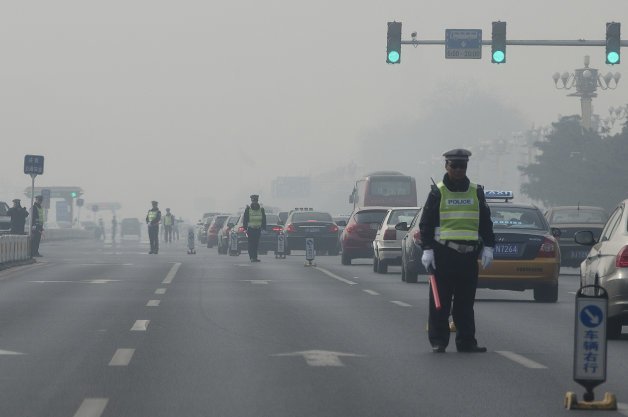Beijing Shuts Down Highways, Airport In Fight Against Smog

Pollution taxes, urging residents to stay indoors, government support for EVs and limited license plate registrations have all been used. This month, things have gotten serious. Bloomberg reportsthat highways and airports in Beijing were closed down for a week to reduce heavy pollution. Police closed off the six expressways that link Beijing to Shanghai, Tianjin and Harbin. Forty seven flights at the Beijing Capital International Airport were affected by the closures. The roads and airports were reopened on October 7.
Air quality index readings at half of Beijing's urban areas had fallen below 200 on October 7; that's the index level dividing medium and heavy pollution. A yellow alert had been lifted that morning, which meant that visibility was expected to improve. Light rain was expected to fall that night, which should help air pollutants dissipate more easily. It's not just a health issue, as air pollution has been causing social unrest in China. Premier Li Keqiang has committed to reducing smog by cutting coal consumption, shutting down steel plants and placing limits on the number of cars on the road.
China plans to build a nationwide network within the next three to five years to study the impact of smog on the health of vulnerable groups and will study related diseases, according to the Chinese Center for Disease Control and Prevention. Forty three monitoring spots will be established in 16 provinces and municipalities that are frequently buried in smog.
Nouvelles connexes


